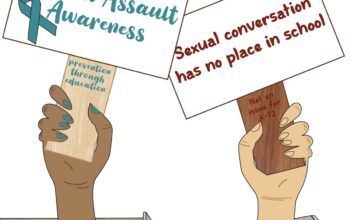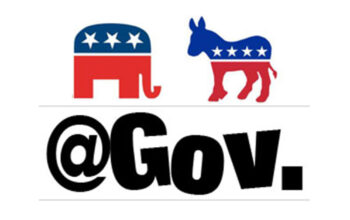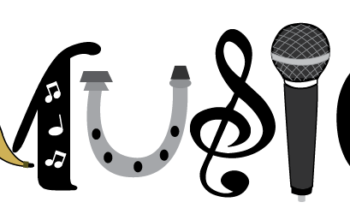Kate McMahon
Opinions Editor
@KateM_Courant
It’s rather alarming when I see students frantically checking their Powerschool with a calculator in one hand and a pencil in the other, trying to calculate the minimum grade they can receive on their upcoming calculus test is, in order to keep a 92 in the class.
But here is where it gets tricky, Sam, our hypothetical student feels helpless; he fears that he will fall short. If he does not get an 86% or higher on this test his transcript will, “literally burst into flames”. In order to avoid this fire hazard, he decides to write the equations on his wrist and on the inside cover of his calculator.
What is the punishment for our “Sly Sam” if he gets caught? Say he just happened to hand in his test in a way that showed his wrist. Boom. What now? If you turn to page twelve of your NCHS student planner you will see an “Academic Honesty” section in bold. (You don’t have to actually do this, I have the most important excerpts for you, because I care about you). This “policy” and I say that word with air quotes because it is barely a policy, is not written in vernacular. Let us take a look:“The New Canaan High School faculty defines unacceptable academic behavior, which constitutes cheating, as:
• Claiming credit for work not the product of one’s own honest effort;
• Providing unwarranted access to materials or information so that credit may be
dishonestly claimed by others;
• Knowing of and tolerating either of the foregoing.”
The section continues, “Students who cheat should expect to be confronted by their teacher and be subject to such penalties as the teacher deems appropriate to the situation. Acts of cheating which the teacher considers particularly serious will be referred to the Administration.”
So let’s see here. Cheating is defined as three bullets according to our faculty. If your act of cheating is “particularly serious” you may get a stern talking to or what? Suspension from class is listed. Also, it mentions that the administration can also notify a student’s prospective colleges. But, what is our operational definition of “serious”? Or even our definition of “particularly”? In this vague langauge lies our issue. Is the fate that resides behind cheating solely resting on the shoulders of our teachers?
For students, the consequences and even the terms of each consequence are rather unclear. One teacher could say, “Hey Sly Sam, you get a 50, don’t do it again.” Or a teacher on a particularly rough day says, “Hm, this seems serious. Maybe he is going head first down a slippery slope. I will have to contact the administration.” Additionally, there are many different forms of academic dishonesty. Plagiarism is different from facilitating academic dishonesty, yet the punishments for either are not spelled out on page twelve.
I have talked to several people and the overwhelming consensus is that authority figures most often see cheating as some moral line that cannot be crossed. If you do, you have succumbed to the pressures of some sort of ethically deficient road, and respect is hard to achieve on that road. However, several people agree that it depends on the type of activity or the authority figure.
It is not uncommon for teachers to leave the room when a test or quiz is out, or get a worksheet offline where the answers can, more often than not, easily be found by the students. Teachers must decide if they care about the morals they are instilling and not just results their students receive, but also the path that their students are taking to get those results.
I personally would like to believe that any teacher would not openly encourage cheating but there are definitely some teachers who would turn a blind eye to red flags, for reasons that I cannot infer.
You see, if Sly Sam gets “popped” for cheating, the punishment that he recieves reflects how seriously the teacher views academic dishonesty. A teacher who simply gives a student a warning as opposed to reporting them is essentially telling the kid that they shouldn’t get caught again; this makes it not as much about the morals but rather the act of getting caught.
It is interesting to see the path our education system is going down. Pressure to receive good grades gets in the way of the moral high road, and a form of short term thinking tunnel vision ensues. Sure, cheat your way through high school, I un-passive aggressively, wish you the best of luck! But! When you get to college, your peers and teachers believe that you learned everything for those grades that got you into your respective place of higher learning, in the first place. This is where the overwhelming emphasis on a grade point average and not on understanding the material put in front of you, crumbles. Congrats on your 4.6 GPA, but do you know anything? It’s in college when the cheating frame of mind stops “helping” and starts hurting.
Generally, students that I spoke to think that because of the stress involved with the pressure to do well, they focus on the short term. It is such common practice at this point that people do not feel morally corrupt, they see it as, “you do what you gotta do!”
This emphasis on grades instead of learning the material comes from our evolving culture and is not just found in the halls of NCHS. In an article released by TIME magazine, the authors noted, “We need to learn more about the learning environments that either promote or inhibit academic integrity. As with any epidemiological study that addresses risk factors, people may not like the results. But we should embrace, not fear, these kinds of findings. They may shine light on dysfunctional social and academic practices that are in need of change, but educators and students nationwide need to engage in this difficult self-reflection.”
Temptation can be too great, the fear of failure is enveloping and a simple click, glance or text can save you. But, what about you, what are you going to do?



